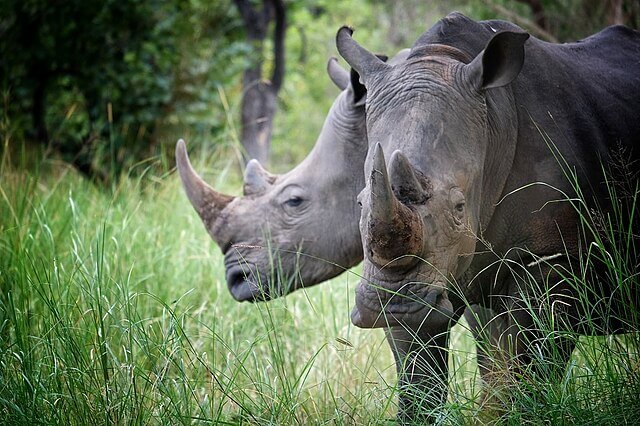
A South African university has launched an anti-poaching initiative that involves injecting rhinoceros horns with radioactive isotopes, which it says are harmless to the animals but detectable by customs officials.
The scheme, known as the Rhisotope Project, is a collaboration between the University of the Witwatersrand, nuclear energy specialists and conservationists. Five rhinos have already been injected, in what the university hopes will mark the beginning of a wider roll-out across the country’s dwindling rhino population.
The launch follows trials last year in which around 20 rhinos at a sanctuary were injected with isotopes. Even at low levels, the radioactive material can be picked up by radiation detectors at airports and border crossings, potentially leading to the arrest of poachers and traffickers.
Researchers from Witwatersrand’s Radiation and Health Physics Unit reported that tests during the pilot phase confirmed the isotopes posed no harm to the rhinos.
“We have demonstrated, beyond scientific doubt, that the process is completely safe for the animal and effective in making the horn detectable through international customs nuclear security systems,” said James Larkin, chief scientific officer at the Rhisotope Project.
“Even a single horn with significantly lower levels of radioactivity than what will be used in practice successfully triggered alarms in radiation detectors,” said Larkin.
The trials also showed that horns could be detected even inside fully loaded 40-foot shipping containers.
According to the International Union for Conservation of Nature, the global rhino population has plummeted from around 500,000 at the start of the 20th century to roughly 27,000 today, driven largely by the demand for horns on the black market.
South Africa is home to the world’s largest rhino population—around 16,000 animals—but also suffers some of the highest rates of poaching, with about 500 rhinos killed for their horns each year.
The university has urged both private game reserve owners and national conservation authorities to adopt the injections in order to help protect the species.
——————————————————————————
At Natural World Fund, we are passionate about restoring habitats in the UK to halt the decline in our wildlife.

